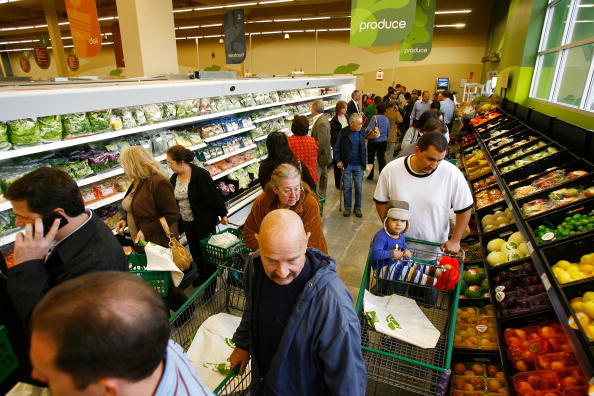On Blaming Food Deserts

David McNew / Getty Images
We pondered yesterday whether lack of access to supermarkets is the major reason behind health inequality, in response to a survey showing most urban families were actually satisfied with their grocery options.
We asked readers: are food deserts really to blame, or do other factors loom larger? From the responses, it looks like prices and having time to prepare meals were also big concerns for families.
DCentric commenter molly_w wrote:
One thing I completely failed to appreciate until I became a mom was how hard it is for parents to find time to cook. I get home at 6, and my 4-year-old daughter needs to head upstairs and start her bedtime routine at 7:30. So I have 90 minutes a day to hang out with my child (never mind my husband), and I want to spend as little of it as possible fixing supper. (She doesn’t want me to spend it in the kitchen, either; she interrupts me every couple minutes with all sorts of invented needs — which only makes dinner prep take longer.) These days I’m all about frozen microwavable rice covered in something that came out of a crock pot, because I can get food on the table in about five minutes and have that time to hang out with my family. And I’m lucky in a lot of ways — I only work one job, I have a partner to help, we only have one kid.
In response to our post on the survey, Sylvia C. Brown, an ANC 7C04 commissioner, tweeted that saving money can come at the cost of saving time:
Corner stores also don’t have the same variety of fresh fruits and vegetables as supermarkets do. There’s a local effort underway to address that problem, with nonprofit D.C. Central Kitchen delivering fresh produce to corner stores as part of its “Healthy Corners” initiative.
Also, simply having a supermarket in a community doesn’t translate into healthier eating habits, according to a study published in the Archives of Internal Medicine. Researchers said healthy food isn’t always visibly displayed in supermarkets and it can be expensive. So you could build it, and they may come, but what will they buy?







